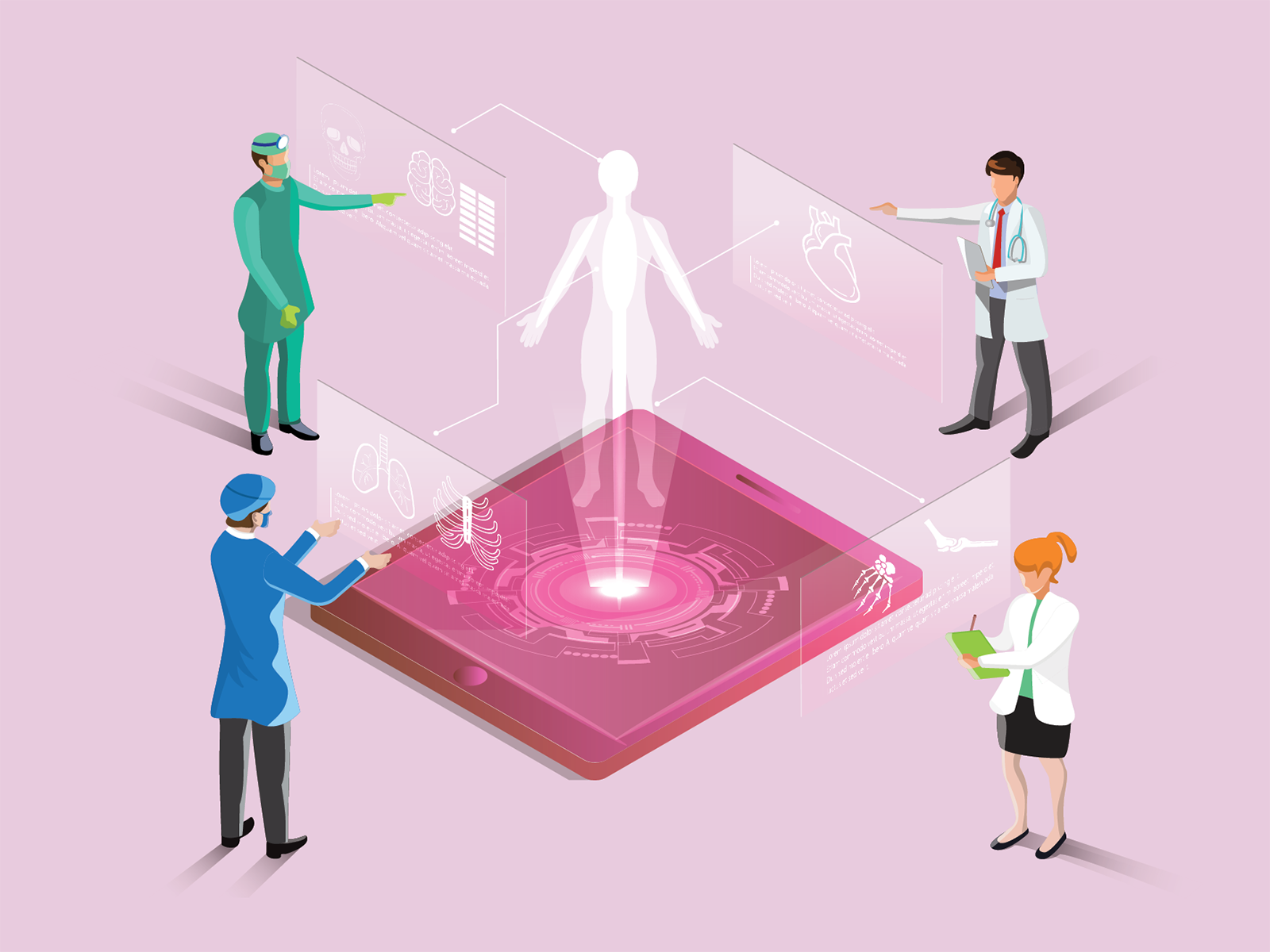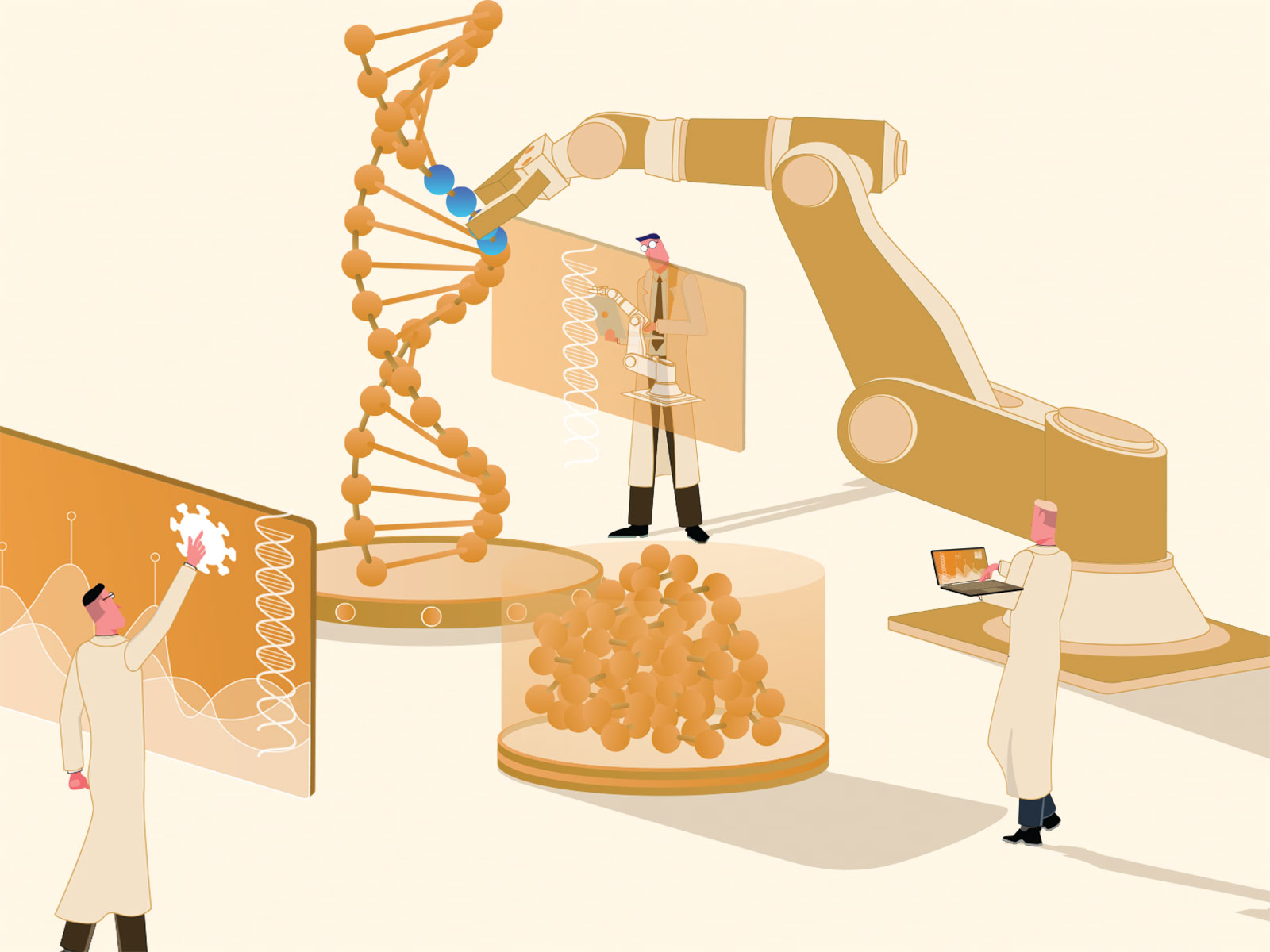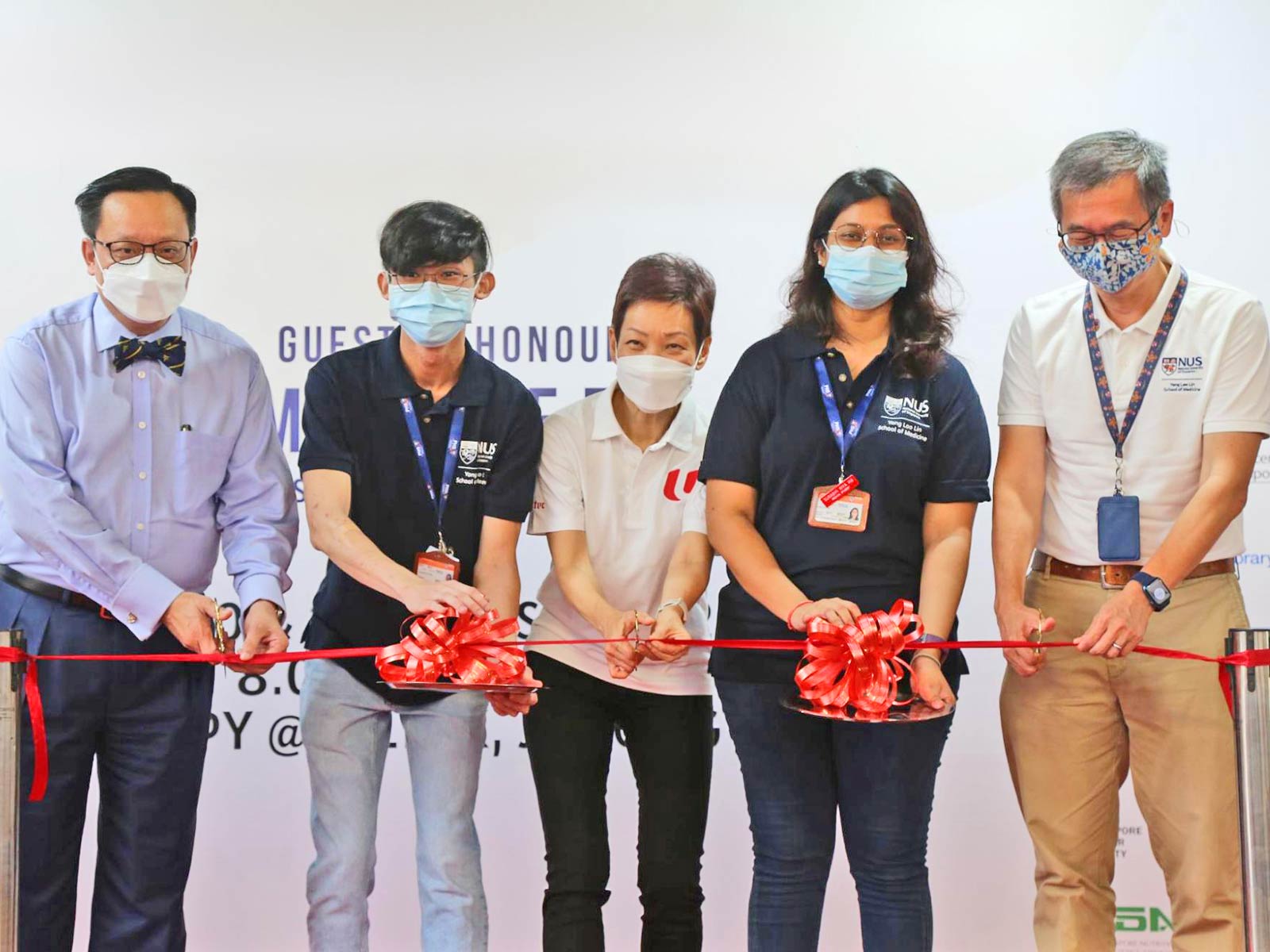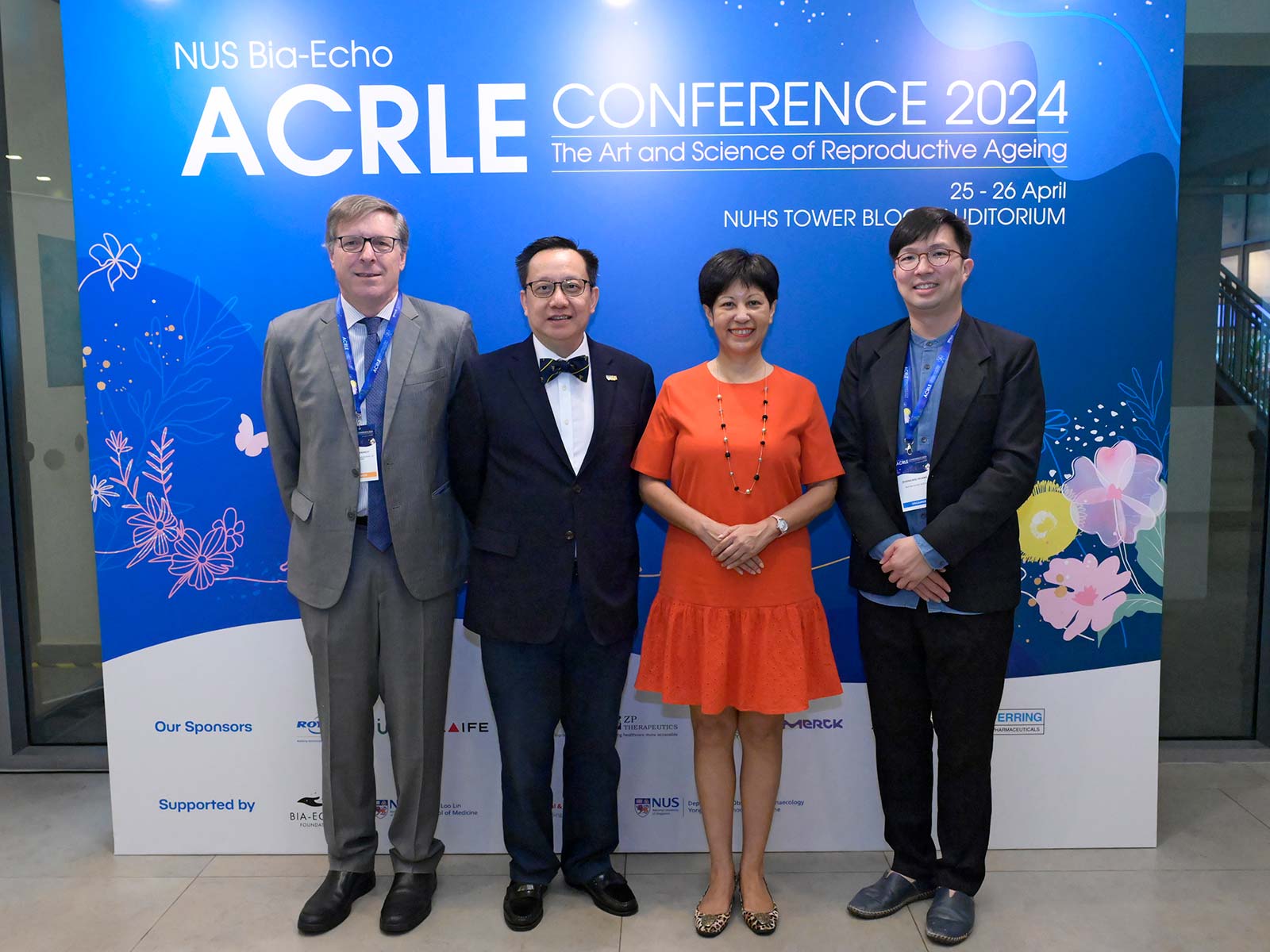
Issue 51
Aug 2024
THE BANYAN TREE

The NUS Yong Loo Lin School of Medicine, Continuing Education and Training (NUS Medicine CET), held its second run of the DTX HealthSG Leadership Masterclass on 9-10 May 2024. The event convened 39 senior leaders — representing a diverse cross-section of the health ecosystem, including healthcare institutions, higher education institutions, biotech, healthtech, medtech, investment firms, pharmaceutical companies, telecommunications providers, and government agencies. The masterclass provided a platform for insightful discussions on healthcare transformation, technological innovation, and the future of healthcare in Singapore.
Keynote Highlights: Professor Chia Kee Seng on Singapore’s Health Ecosystem
Professor Chia Kee Seng, Founding Dean of the NUS Saw Swee Hock School of Public Health, delivered a compelling keynote address that challenged participants to think beyond traditional healthcare systems. He emphasised the importance of understanding health systems in their entirety, advocating for a broader perspective that encompasses primary, secondary, and tertiary prevention. Prof Chia introduced frameworks like the logic model and the WHO Health Systems Framework, stressing the need to prioritise outcomes over inputs when evaluating health systems.
Delving into the history of health systems reform in Singapore, he traced the evolution from a centralised system to an intentionally decentralised set-up, highlighting the challenges and successes along the way. He emphasised the need for context-sensitive reforms that address the unique demographic and epidemiological changes facing Singapore, such as the ageing population and the sustained rise of non-communicable diseases (NCDs). He stressed the importance of governance and leadership in managing public health issues effectively.
Looking towards the future, Prof Chia questioned the effectiveness of simply evolving healthcare systems into broader health systems. He pointed to limitations of healthcare professionals in addressing primary and secondary prevention, and instead advocated for a focus on social determinants of health and a shift towards policies and programmes that promote population-level health improvements. He also discussed the potential of integrating digital transformation into health strategies to achieve significant public health outcomes.
Advancing Healthcare through Technological Innovation: Insights from Professor Lim Chwee Teck
Professor Lim Chwee Teck, NUSS Chair Professor and Director of the Institute for Health Innovation & Technology (iHealthtech) at NUS, showcased the transformative power of technology in healthcare. He highlighted iHealthtech’s interdisciplinary approach, where engineers, biologists, data scientists, and clinicians collaborate to develop cutting-edge solutions.
Prof Lim presented several groundbreaking technologies, including point-of-care diagnostic devices, wearable sensors, and smart insoles for diabetic patients. He emphasised the importance of translating research into practical applications that benefit patients and healthcare providers. He also discussed iHealthtech’s achievements, strategies for commercialisation and clinical translation, ensuring that innovative technologies reach the market and improve patient care.
Key Takeaways from Other Speakers
AI for Healthcare
Associate Professor Ngiam Kee Yuan, Group Chief Technology Officer at National University Health System (NUHS), spoke about the power of Artificial Intelligence (AI) to augment human intelligence in healthcare. He outlined the process of building AI solutions, emphasising the crucial role of clean, well-organised data—what he called “liquid gold”—in unlocking the full potential of AI. A/Prof Ngiam showcased several AI-powered tools developed and deployed at NUHS, demonstrating the impact of AI on various aspects of healthcare, from predicting readmissions to personalising medication prescriptions. He also discussed the transformative potential of large language models (LLMs) like ChatGPT while acknowledging their limitations and presenting NUHS’ solution, RussellGBT, a secure, internally hosted LLM designed to mitigate these challenges.
The Role of Data and Business Models
Professor Robert Morris, Chief Technology Strategist at MOHT, delivered a thought-provoking presentation on the role of data, information, and AI in healthcare transformation. He challenged the audience with a provocative statement: “Technology is always beaten by a good business process, which is always beaten by a good business model.” He illustrated this point with compelling case studies, including the collapse of Haven Healthcare, demonstrating that technological prowess alone cannot guarantee success. Prof Morris emphasised the importance of focusing on the right problems, addressing social and behavioural factors that significantly impact health outcomes. He advocated for a “shift left, shift up” strategy, moving care from hospitals to homes and communities, and empowering individuals to manage their own health. He showcased examples of AI-powered solutions being deployed in Singapore, emphasising the importance of explainable AI and rigorous clinical validation.
Digital Innovation for Healthy Ageing
Mr Sng Hock Lin, Chief of the Silver Generation Office at the Agency for Integrated Care (AIC), highlighted the significant challenges and opportunities presented by Singapore’s rapidly ageing population. He emphasised the importance of a life-course perspective and respect for autonomy when designing solutions for older adults. Mr Sng showcased various technological innovations that can support healthy ageing, from age simulation tools to remote monitoring systems and smart home sensors. He also discussed the ethical considerations of using technology, stressing the need to respect older adults’ preferences and involve them in the design and implementation of technology-driven solutions.
Shaping the Future of Mental Health
A panel discussion moderated by Dr Tan Weng Mooi, (Director / Lead Integrated Health Promotion, MOHT), featuring Ms See Yen Theng (Chief, AIC, Caregiving and Community, Mental Health Division), Mr Asher Low (Founder and Executive Director of Limitless), Mr Theodoric Chew (Co-founder and CEO Intellect), and Mr Caleb Tan (Senior Manager, Mindline.sg, MOHT) explored the future of Singapore’s mental health ecosystem. The discussion focused on key challenges such as stigma reduction and improving access to care, while exploring innovative approaches. The panellists emphasised the importance of technology integration, supportive policy frameworks, and community engagement in fostering mental well-being. The discussion and presentation highlighted the progress made in mental health advocacy and care while charting a progressive course for the future, ensuring mental well-being remains a central focus of Singapore’s health agenda.
Affective Computing – Impact and Implication on Public Health
Dr Yang Yinping, Senior Principal Scientist at A*STAR, presented on the transformative potential of affective computing in healthcare. This talk highlighted how affective computing, which analyses emotional data and incorporates empathy into technology, is revolutionising healthcare approaches. Dr Yang envisioned a future where digital health is not only technologically advanced but also deeply integrated with emotional intelligence and trustworthiness, marking a new era in public health evolution.
The Era of Extended Reality (XR)
Mr Sirko Pelzl, CEO of apoQlar and Chairman of HoloMedicine Association, presented on the transformative potential of extended reality (XR) in healthcare. He urged hospitals to embrace XR and cloud-based solutions like HoloMedicine, a medically certified platform deployed in over 60 hospitals globally. HoloMedicine offers seamless data upload and AI-powered segmentation, real-time collaboration on 3D patient data, immersive medical training, and device agnostic compatibility. Mr Pelzl showcased compelling use cases in surgical planning, patient education, medical training, and telemedicine, emphasising the importance of 5G connectivity for high-fidelity XR experiences. He envisions a future where XR enables hospitals to transcend physical location boundaries, enhance medical training, and deliver more personalised patient care.
Conclusion
The DTX HealthSG Leadership Masterclass 2024 provided a valuable platform for senior leaders to learn about cutting-edge ideas, share insights, and collaborate on shaping the future of healthcare in Singapore. The event showcased a vibrant ecosystem of innovation, with startups like QuantumTX, FlexoSense, and Microtubes Technology developing solutions that address a wide range of healthcare challenges. From magnetic field therapy for muscle rehabilitation to smart insoles for diabetic foot care, these companies are at the forefront of a technological revolution that is transforming healthcare delivery. The Masterclass underscored the importance of fostering this spirit of innovation, ensuring that Singapore remains a global leader in healthcare excellence.
Stay updated on upcoming courses and events by following us on our social media page and subscribing to our mailing list. You might also wish to early register interest for next year’s masterclass by contacting us at medicine.cet@nus.edu.sg
Click here to follow us on NUS Medicine CET LinkedIn.
Click here to join our mailing list to receive updates on CET programmes and events.
This column is dedicated to the pursuit of continuous learning and development and takes its name from the banyan tree. It has roots that grow deep, anchoring it firmly in the soil. The tree spreads its shade wide and far and provides space for reflection and discussion. We invite you to come and take a seat under its shade.
More from this issue
INSIGHTS
It’s Alive!!!

STUDENT MATTERS
Public Health Service


